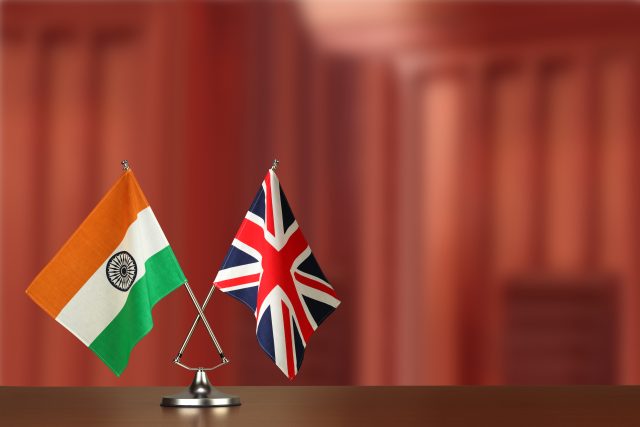This website uses cookies so that we can provide you with the best user experience possible. Cookie information is stored in your browser and performs functions such as recognising you when you return to our website and helping our team to understand which sections of the website you find most interesting and useful.
India whisky tariff agreement to be reached by end of the year?
Tariffs on Scotch whisky shipped to India remain one of the key points to be resolved in discussions with the UK about a free trade agreement (FTA). However, the end may be in sight…

Negotiations rumble on with both sides making optimistic noises about a pact being concluded by the end of this year despite some stumbling blocks, including the vexed question of India’s high levy on imported spirits.
India’s commerce secretary Sunil Barthwal said that bilateral discussions were being held on the sidelines of last week’s G20 meeting of trade and investment ministers in Jaipur in an attempt to move towards an agreement.
The stakes are high. In volume terms, India is the world’s biggest market for all whiskies.
For Scotch whisky, India stands at number five in the world by value, sales rising by 93% in 2022 to £282 million (US$340.2m). Yet Scotch accounts for just 2% of all whiskies consumed in India.
If the UK-India fair trade deal is confirmed, these numbers could soar further.
The Scotch Whisky Association’s chief executive Mark Kent has calculated that Scotland’s distillers could enjoy a £1 billion boost to their sales over five years.
How can a resolution be reached?
The problem to be resolved comes in two parts.
First, at what level should the tariff be set?
Second, what the actual cost of the goods will be on which duty will be charged when they land dockside in India?
Currently, import duties for Scotch whisky – both bottled and bulk – stand at 150% above the Minimum Import Price (MIP).
Sources suggest that on conclusion of the FTA that could be cut to 100% for bottled Scotch and halved to 75% for cask shipments. A range of levels remains under consideration over differing timescales.
Delhi sources also suggest that the ongoing negotiations involve the possibility of gradually lowering the duty on bottled Scotch over a 10-year period, with the target of reaching 50%.
From the outset, producers of Indian Made Foreign Liquor (IMFL) brands have been wary of any concessions to Scotch whisky producers, given the soaring consumption of premium spirits in India and competitive market dynamics.
A main concern is that by lowering tariffs, some imported whiskies could be sold at prices lower than locally produced brands. The critical level is said to be bottles retailing at 750 rupees (about £7).
There is pressure from the domestic industry for a minimum import price (MIP) of 5% for each 750 ml bottle. But there are hints that India might agree to an MIP of US$4 per bottle, which, it is claimed, might spur a potential influx of Scotch imports into India.
Domestic players are concerned that such a move could mean the displacement of several homegrown brands and IMFL products.
The Times of India has reported that there are fears that overseas distillers with bottling units in India might not invest in fresh capacity and may even reduce their existing capacity, negatively impacting employment in the industry.
The paper calculated that even a US$1 difference in the MIP – from US$5 to US$4 – would trigger a significant increase in the shipments of popular Scotch imports such as Johnnie Walker Black Label, Chivas Regal and The Glenlivet into India.
Part two of the problem is the mechanics of how much it costs the producer to deliver their product to India, the figure upon which tax will be levied.
It is alleged that under-invoicing for imported alcohol is widespread among foreign distillers. Pernod Ricard, for instance, faces a tax demand for about US$244 million for allegedly undercharging its Indian company for concentrate imports for several years.
The French company, which includes Chivas Bros, the second largest player in the Scotch whisky industry, strongly rejects the charges and is fighting the case in India’s courts.
Now Delhi is discussing a plan to resolve the perceived problem of under-invoicing.
If agreed, importers would be required to pay customs duty based on a price fixed by India’s customs service. That would become the reference price and only if a product exceeded this would it be allowed into the country.
The plan was proposed by the Confederation of Indian Alcoholic Beverage Companies, the national trade body.
It alleged that in an effort to avoid paying duty, some overseas distillers had told the Indian tax authorities that the cost of producing, shipping and insuring their brands for the Indian market was only a third of the price they were quoting to duty-free outlets.
Under the proposed scheme, once the MIP is established, all importers would pay a tax based on the value of their goods set by the customs authorities. If a producer disagreed with the valuation, it could produce evidence to challenge it.
That could be a torturous and lengthy process, given the tortoise-like pace of some Indian official procedures.
Meanwhile, the inter-governmental negotiations continue.

